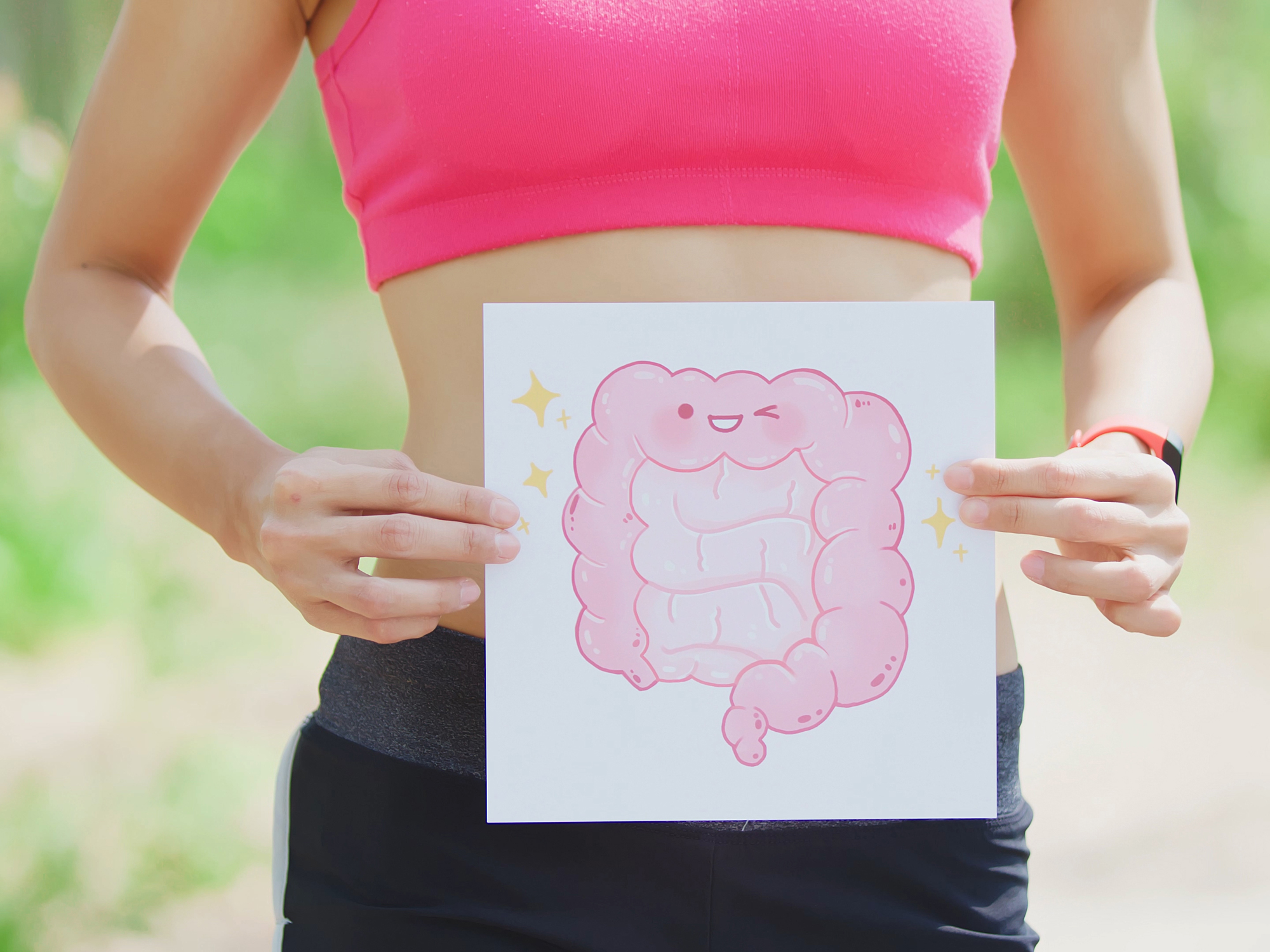Get Easy Health Digest™ in your inbox and don’t miss a thing when you subscribe today. Plus, get the free bonus report, Mother Nature’s Tips, Tricks and Remedies for Cholesterol, Blood Pressure & Blood Sugar as my way of saying welcome to the community!
The amazing healing power of fiber

If you’ve been reading my posts for a while, you may know that I suffered from Ulcerative Colitis beginning at age 12 — which ultimately resulted in my total proctocolectomy surgery in 1997.
In case you’re unfamiliar, a proctocolectomy is the complete removal of the large intestine and most of the rectum.
Had I known that high-fiber food and fiber supplementation actually heals intestinal diseases such as ulcerative colitis, I might have been spared major surgery… and years of incontinence.
As a doctor, you may wonder, how could I not have known. Well, as I’ve written here before (as have some of my colleagues), medical school provides scant little as far as nutritional education.
That’s why I’d like to share some interesting studies with you… starting with underlying triggers that will worsen a genetic weakness in the intestine.
How gut inflammation develops
Consider what factors add to susceptible genes to cause ulcerative colitis and other intestinal diseases:
- Unhealthy intestinal flora: overgrowth of unhealthy bacterial strains and yeast cause inflammation
- Foods that disrupt normal intestinal flora: refined sugar (feeds yeast); bread (contains yeast and promotes yeast); digestive enzyme deficiency or low stomach acid (undigested foods in the colon become food for unhealthy gut bacteria and yeast)
- Foods that can be allergenic to the intestinal lining: wheat protein (gluten), dairy (cow) protein, chemical food dyes and preservatives
- Foods that irritate the intestinal lining: excessive alcohol and/or caffeine; spicy hot foods
- Foods low in fiber: fiber ferments to produce the short-chain fatty acids acetate, propionate and butyrate that help heal the intestinal mucosa
- Foods that are inflammatory in all body cells: refined sugar foods, carbonated soda drinks, trans-fats, and hydrogenated oils, and foods causing allergy
- Lack of abundant micronutrients in the bloodstream. These are omega-3 fatty acids, organic vitamins, organic minerals, enzymes, antioxidants, and plant-derived chemicals.
Now for some science on how fiber heals…
How high fiber heals
I previously wrote that a high amount of dietary fiber normalizes your blood sugar, reduces your body fat, significantly reduces heart disease, is vital for intestinal health and can even heal intestinal diseases.
Let’s now look at the mechanism of action behind fiber’s healing effects…
In one study, pectin, a soluble dietary fiber, was studied in rats and found to directly heal the intestinal lining. Plus, it generates short-chain fatty acids as major metabolites of dietary fiber.
These short-chain fatty acids such as butyrate and acetate are well-proven to have a potent anti-inflammatory effect on intestinal diseases. In fact, butyrate or acetate enemas, plus high-fiber foods and supplements, are an effective treatment for ulcerative colitis.
Yet, researchers are still discovering more about how fiber actually does so many great things for health. As I mentioned, fiber is the perfect food for healthy bacteria to feed on (fermentation) which generates the gut-healing short-chain fatty acids called butyrate, acetate, and propionate.
And when the gut heals there are immune system benefits. The decreased antigenic load along the intestinal lining cells lowers autoimmune and chronic inflammation. There is more…
In a mouse study, researchers found that fiber and acetate supplementation decreased gut dysbiosis (imbalance of bacteria); but also significantly reduced blood pressure, cardiac fibrosis, left (heart) ventricular hypertrophy, and markedly reduced kidney disease (renal fibrosis).
They even measured some important biomarkers to prove the correlation between high fiber and acetate with these findings. They found downregulation of important master regulators of cardiac hypertrophy, cardiorenal fibrosis, and inflammation (namely, cardiac and renal Egr1). Correspondingly, they observed an upregulation of various related genes that control the circadian rhythm in heart and kidney tissues, and downregulation of kidney renin-angiotensin hormones (which controls blood pressure) and downregulation of heart protein kinase molecules.
In summary, the high fiber generated short-chain fatty acids, which apparently caused molecular changes that improved cardiovascular and kidney function.
A diet for colitis
Patients with unresolved ulcerative colitis must learn the principles of nutrient-dense whole foods. Colitis patients already have decreased absorption due to the inflammation there. Therefore, they need optimal nutrition that can be absorbed easily and that does not further irritate (by physical contact) or inflame (immunologically) the tissue.
As an example, a smoothie containing fresh apples, strawberries, spinach, rice milk, flax oil, and ice is nutrient dense and healing to irritated mucosa. Many additional foods can be added to such a smoothie for flavor (i.e. liquid stevia) or calories (i.e. almonds, avocado, raw eggs).
A smoothie is also an easy way to introduce nutrient supplements. I remember my first time drinking a generic brand of Aloe Vera juice. It tasted terrible! At that time, I knew almost nothing about nutrient-dense and whole-food nutrition.
I’m glad my own personal experience served as a catalyst to investigate healing through fiber… and I’m happy to share it with you.
Editor’s note: Did you know that when you take your body from acid to alkaline you can boost your energy, lose weight, soothe digestion, avoid illness and achieve wellness? Click here to discover The Alkaline Secret to Ultimate Vitality and revive your life today!
Sources:
- Reynolds A, Mann J, Cummings J, Winter N, Mete E, Te Morenga L. Carbohydrate quality and human health: a series of systematic reviews and meta-analyses — Lancet. 2019 Feb 2;393(10170):434-445. PubMed PMID: 30638909
- Marques FZ, Nelson E, Chu PY, et. al. High-Fiber Diet and Acetate Supplementation Change the Gut Microbiota and Prevent the Development of Hypertension and Heart Failure in Hypertensive Mice — Circulation. 2017 Mar 7;135(10):964-977. PubMed PMID: 27927713
- Andoh A, Bamba T, Sasaki M. Physiological and anti-inflammatory roles of dietary fiber and butyrate in intestinal functions — JPEN J Parenter Enteral Nutr. 1999 Sep-Oct;23(5 Suppl):S70-3. PubMed PMID: 10483900














